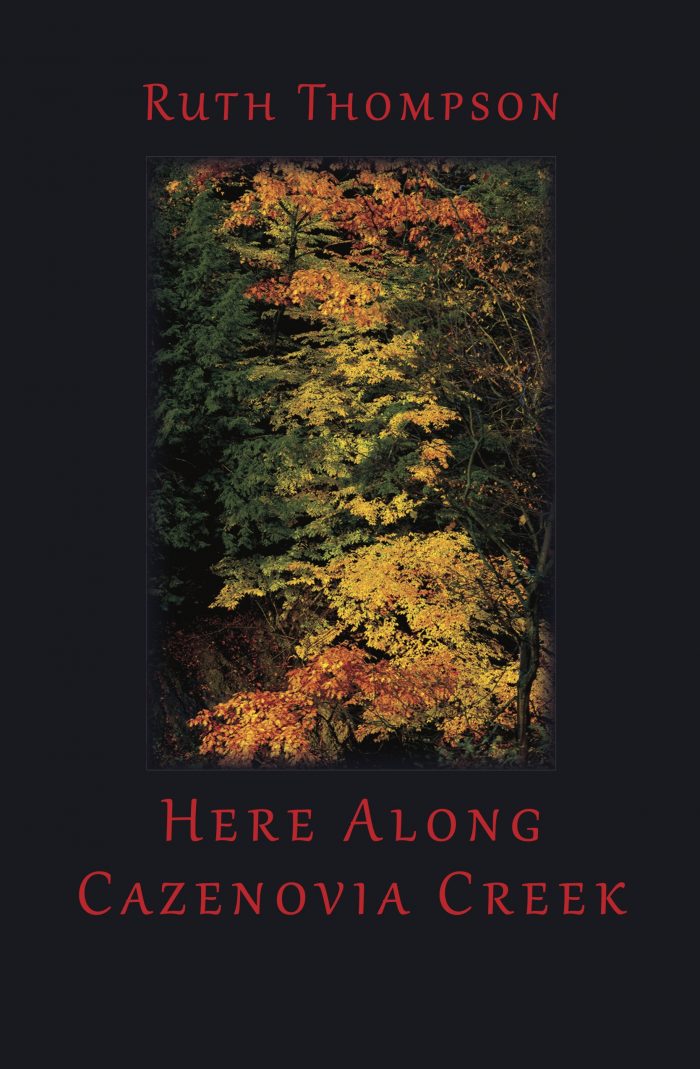
Here Along Cazenovia Creek
In 2005 I moved from California, where I had lived all my life, to the beautiful hill country of western New York, with its creeks and woods and pastures, its small farms and villages, and its four intense seasons.
I had never lived in a place with real seasons before, and I was stunned.
My first book of poems came out of this experience. It is a sequence of praise songs celebrating the turning seasons in our farmhouse that backed onto Cazenovia Creek.
It was the basis for “Dancing the Seasons,” a performance of dance and poetry with the great Japanese dancer Shizuno Nasu.
VIDEO: “Spring” | “Summer” | “Fall/Winter”
At once earthy and full of spirit and mystery, this chapbook celebrates a vivid cycle of the seasons in the hill country of western New York. It includes “Fat Time,” which won the New Millennium Writings Award in 2007.
Purchase this book through Powell’s, IndieBound, Amazon, or Barnes & Noble.